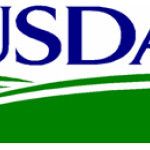- Industri: Government
- Number of terms: 41534
- Number of blossaries: 0
- Company Profile:
The Hatch Act of 1887 established an agricultural experiment station to be affiliated with the land grant college of agriculture in each state. Research done at these stations underpins the curriculum of the colleges, as well as the programs of the Cooperative Extension System.
Industry:Agriculture
A commodity that is widely and regularly produced and consumed (i.e., wheat, rice, potatoes). A term used to designated the length of fiber in cotton and wool.
Industry:Agriculture
Mandatory, federally-set requirements that determine what a food product must contain in order to be marketed under a certain name in interstate commerce. Mandatory standards (which differ from voluntary grades and standards applied to agricultural commodities) protect the consumer by ensuring that a label accurately reflects what’s inside — for example, that "mayonnaise" is not an imitation spread, or that "ice cream" is not a similar, but different, frozen dessert.
Industry:Agriculture
The purchase of a futures contract of one delivery month against the sale of another futures delivery month of the same commodity; the purchase of one delivery month of one commodity against the sale of that same delivery month of a different commodity; or the purchase of one commodity in one market against the sale of the commodity in another market, to take advantage of a profit from a change in price relationships. The term spread is also used to refer to the difference between the price of a futures month and he price of another month of the same commodity. A spread can also apply to options contracts.
Industry:Agriculture
The price at which a physical commodity for immediate delivery is selling at a given time and place. See cash price.
Industry:Agriculture
A public or open marketplace (such as open exchanges or auction houses) where products (including agricultural products such as livestock, grain, cotton, etc.) are bought and sold. The Minneapolis Grain Exchange and the now defunct National Cheese Exchange are examples. Spot also refers to a maturing delivery month of a futures contract.
Industry:Agriculture
The actual commodity as distinguished from a futures contract. Sometimes used to refer to cash commodities available for immediate delivery.
Industry:Agriculture
In commodity trading, an individual who does not hedge, but who trades in futures contracts with the objective of achieving profits through the successful anticipation of price movements.
Industry:Agriculture
Species represent the lowest and most important of the primary groupings used in classifying plants, animals, and microorganisms. While no single definition applies to all organisms, biologists rely principally on (1) morphological and genetic similarities and (2), for sexually reproducing organisms, the capability of interbreeding with one another but not other groups. If different species do interbreed, the offspring, if any, are often sterile. Biologists give species unique, binomial names: a generic name that includes closely related species, and a species-specific name. The horse, for example, is Equus caballus; the donkey or ass is Equus asinus. (Their offspring, the mule, is sterile.) As populations of organisms vary geographically and change over time (becoming extinct, or splitting or evolving into new species), species classifications are neither absolute nor immutable; where some biologists see variations within a species (and may designate subspecies), others may see separate species. About 1.5 to 2 million species have been named, but scientists estimate the total number of species could be 5 to 100 million, many of them probably undiscovered microorganisms. The Endangered Species Act (ESA) protects species designated as endangered or threatened with extinction; these protections prohibit taking endangered species and can include restrictions on habitat alterations, such as logging or water pollution. Because of the way "species" is defined in the ESA, policy debates have arisen over whether certain groups of organisms qualify for listing (e.g., northern goshawks and the Alexander Archipelago wolf).
Industry:Agriculture
Usually refers to crops covered by marketing orders that generally are not fruits or vegetables. Specialty crops have included almonds, filberts, walnuts, spearmint oil, hops, dates, raisins, and prunes.
Industry:Agriculture
